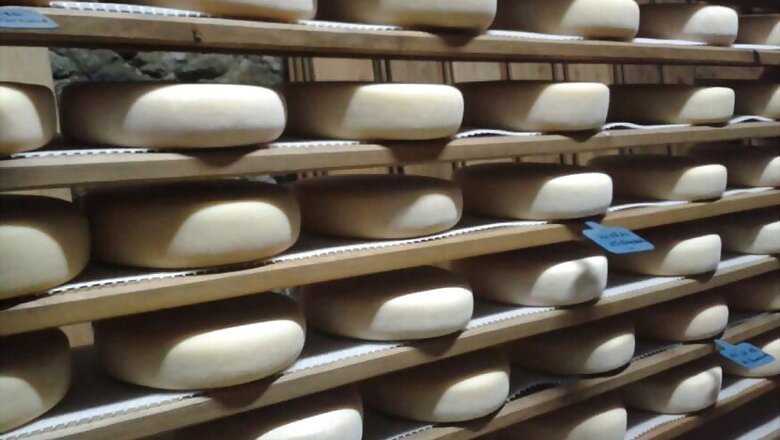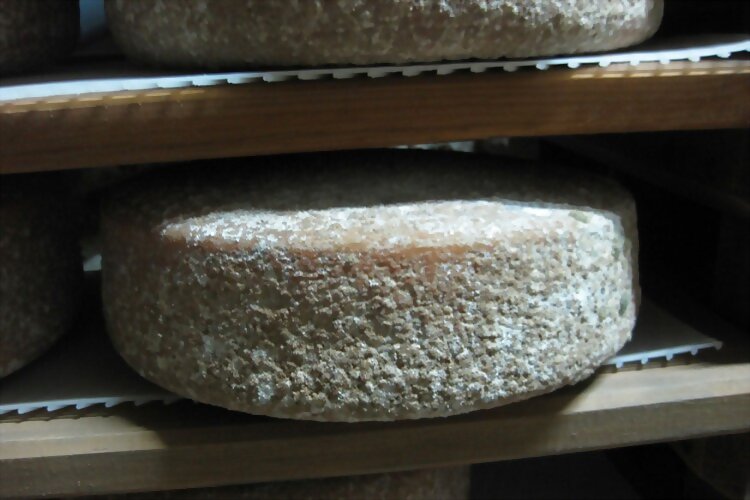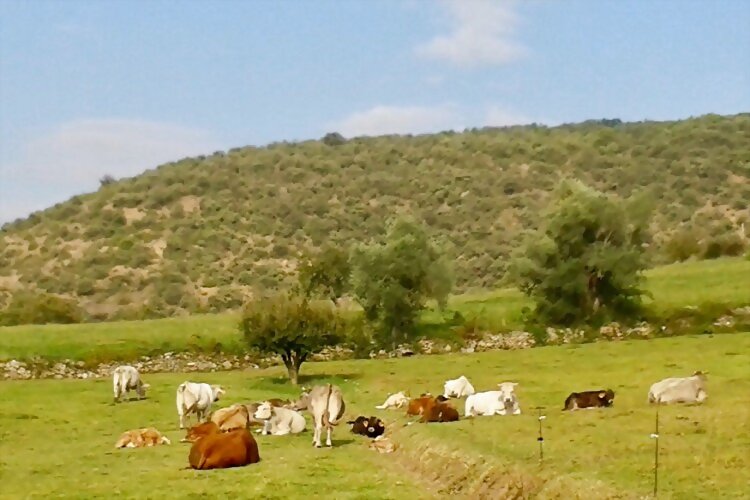
views
High up in the Spanish Pyrenees in Catalonia, a new generation of artisan cheese makers is at work. Some were born and raised in the region, often from farming backgrounds with ready-made herds of goats, sheep or cows. Finding it a struggle to make a living from selling milk or meat, they turned to cheese making. Others, like Salvador Maura, arrived by a different route, from different backgrounds.
Maura hails originally from the island of Mallorca, Spain. He studied agricultural engineering and worked for years as a civil servant in the Catalan agricultural department. "I promised myself that when I grew up I'd be a cheese maker." In 2001, at the great age of 39 ("When I'd grown up," he grins), Maura realized his dream and set up the Mas d'Eroles dairy in Adrall, near the principality of Andorra. Today, he makes a range of aged, unpasteurized cow's milk cheeses. "Except," he explains, "we don't really make cheese -- we just tend it, like a shepherd his sheep."
A tasting at the dairy
The milk for Maura's 12 cheeses comes from a herd of Holstein cows that he owns jointly with the farmer next door. Many of the cheeses are sold at the dairy, situated conveniently close to the road between La Seu d'Urgell and Andorra. They're also available at top outlets like Vila Viniteca in Barcelona and Brindisa in London's Borough Market.
Since my last visit, Maura has added a cozy little cheese bistro, which he calls his Espai de Tast ("tasting space"). Here you can settle down and sample a selection of his cheeses, which he serves on rustic wooden boards, accompanied by selected Catalan wines from his many wine-growing friends in Priorat, Montsant, Terra Alta and Costers del Segre.

Our tasting began with Escaldat, a small, stretched-curd cheese about the size of a clenched fist. It's a little like the Italian escamorza, good for nibbling raw when young or for tossing over a salad of mixed leaves. When it puts on a bit of age, it melts beautifully -- I could imagine using it as queso fundido and loading it into a flour tortilla. Fogassa is the new arrival in Salvador's cellar, and the only one that's not made with home-grown milk. It's made on the island of Menorca, then shipped across to him and aged for several months till it becomes impressively stinky -- in fact, he likens it to the famous English cheese Stinking Bishop. If you're a fan of Epoisses from Burgundy or Munster from Alsace, you'll love Fogassa.
Ermesenda is his best-selling cheese, a firm favorite, rich in creamy flavor and a magnificent melter. Salvador suggests using it as you would raclette cheese, served slithering over small new potatoes cooked in their skins. Castellot is another story altogether, a large, semi-hard, pressed cheese with a grayish crust, crumbly texture and intense flavor, inspired by the Piedmontese Castelmagno. It's a cheese for winter, lovely served with a perfectly ripe pear. Our final taste was of his newly created blue cheese, Abadessa d'Elins, which he admitted is still a work in progress and which provided proof for me of how very hard it is to make a convincing creamy blue.

Cheese made with pride
Mas d'Eroles cheeses have won many awards both in Spain and abroad, and Maura has become something of the elder statesman among Catalonia's artisan cheese makers. It's heartening to see the pride he takes in his great product, which reflects the enormous strides made in the region in the past 20 years.




















Comments
0 comment